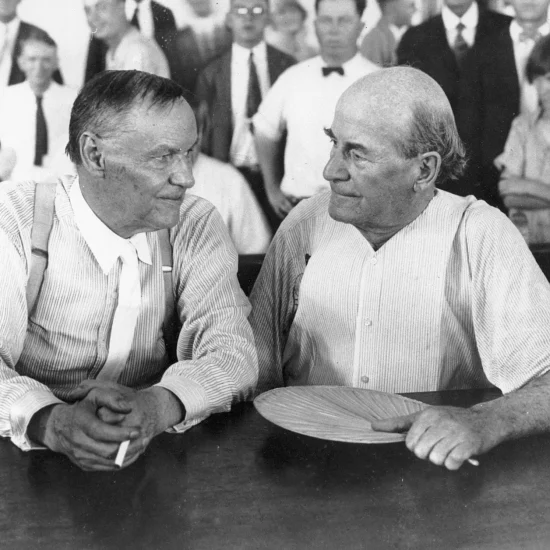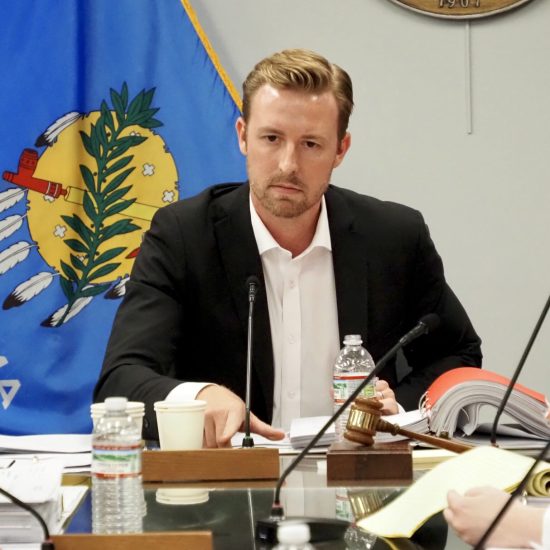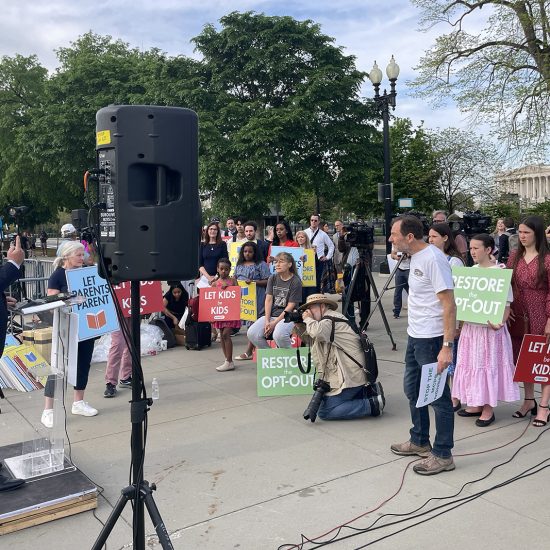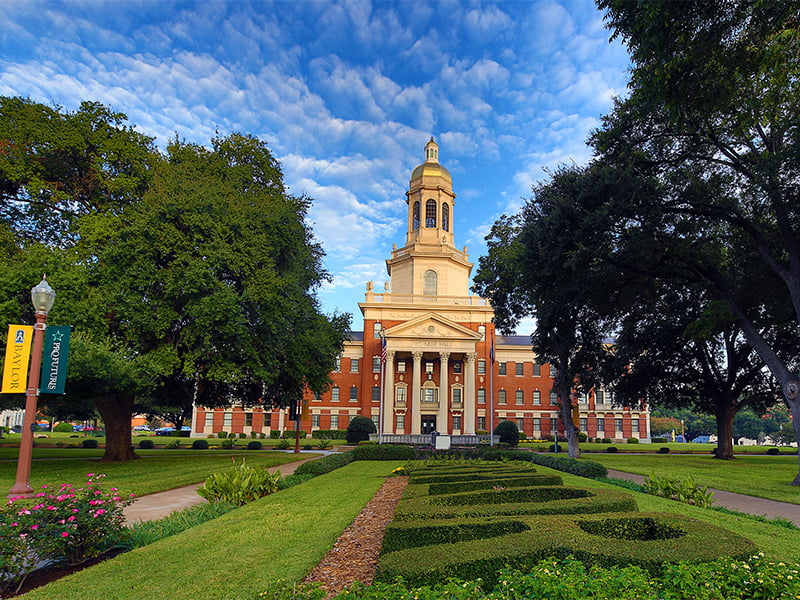
(RNS) — The U.S. Department of Education accepted Baylor University’s request for exemption from Title IX’s sexual harassment provision after the private Baptist school asked to dismiss discrimination complaints filed by LGBTQ+ students that the university said were “inconsistent” with the institution’s religious values.
“For the first time in Title IX’s history, a federally-funded university has been given special permission, by the Biden Administration no less, to allow its LGBTQIA+ students to be sexually harassed,” wrote Paul Southwick, director of the Religious Exemption Accountability Project, in a statement.
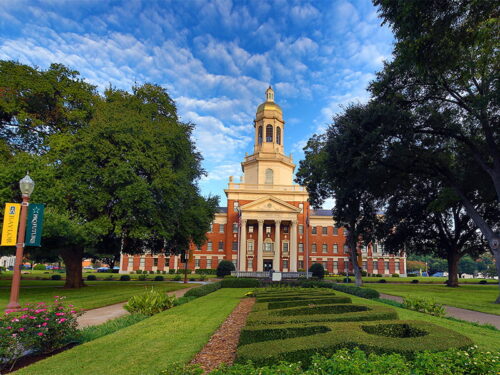
Baylor University in Waco, Texas. Photo courtesy of Baylor University/Matthew Minard
In 2021, the nonprofit filed a Title IX complaint on behalf of former student Veronica Bonifacio Penales, in which she accused the university of tolerating sexual harassment after the school failed to address homophobic slurs she received from other students on campus and social media.
Over the past two years, religious universities invoking their right to exemption from certain Title IX dispositions in the name of religious freedom has been viewed by many LGBTQ advocates as a mechanism to avoid granting equal treatment and protection to queer students attending religious institutions.
Elizabeth Reiner Platt, director of the Law, Rights, and Religion Project at Columbia Law School, told the Texas Tribune that the decision was “the latest example of religious exemptions being expanded in ways that undermine equality rights.”
Through this request, the private Christian university obtained the guarantee “that the belief in or practice of its religious tenets by the University or its students would not constitute unwelcome conduct,” as it is characterized in Title IX’s definition of sexual harassment.
The direct consequences of this decision are still unclear and will depend on how the federal agency will apply it to specific cases, said Joe Baxter, REAP’s deputy director.
“This could put students at risk of not being protected from sexual harassment that occurs on these campuses, and LGBTQIA students are very much at risk of this kind of harassment in the schools,” he said.
As students return to campus for the fall semester, Penales worries about the implications of this decision for incoming LGBTQ+ students at Baylor. For now, no final decision has been made regarding her original complaint.
“I know many will not feel safe returning to campus, and rightfully so. If Baylor believes it has a religious liberty right to allow us to be harassed, there truly is no protection for us,” she wrote in REAP’s statement.
In a statement issued early Monday to Baylor’s students, faculty, and staff, the university’s president, Linda A. Livingstone, said the school requested an exemption from the Title IX provision that prohibits sexual harassment in response to current considerations of the Department of Education to expand its definition of sexual harassment. The modification could “infringe on Baylor’s rights under the U.S. Constitution, as well as Title IX, to conduct its affairs in a manner consistent with its religious beliefs,” according to the statement.
Livingstone said the decision won’t alter how the university investigates sexual harassment complaints.
“There will be NO CHANGES to Baylor’s current practices or policies related to sexual harassment and other forms of sexual and interpersonal conduct resulting from this assertion of our existing religious exemptions,” she wrote in the statement.
Baylor University has been accused in the past of mishandling sexual assault accusations. According to a 2016 independent investigation commissioned by the university and conducted by the Pepper Hamilton law firm, “the school failed to take action to identify and eliminate a potential hostile environment” and “identify and respond to a pattern of sexual violence by a football player.”
Kathryn Post contributed to this story.


